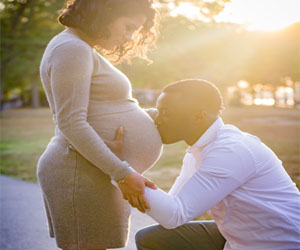


The Power Of Rekindling Romance And Finding A New Beginning
 Love, the most profound and complex of human emotions, is often associated with joy, passion, and connection. However, it can also bring heartbreak and pain. After a challenging experience such as the end of a relationship or a divorce, the idea of loving again might seem daunting. But the journey of learning to love again is a testament to the resilience of the human heart.
Love, the most profound and complex of human emotions, is often associated with joy, passion, and connection. However, it can also bring heartbreak and pain. After a challenging experience such as the end of a relationship or a divorce, the idea of loving again might seem daunting. But the journey of learning to love again is a testament to the resilience of the human heart.
Healing And Self-Discovery
The process of learning to love again often begins with healing and self-discovery. After a significant emotional setback, it's essential to take time to mend and reflect. Understand that healing is not about forgetting the past, but rather, it's about coming to terms with it. This self-reflection can help you better understand your needs, desires, and personal growth, setting the stage for a healthier, more fulfilling love in the future.
Embracing Vulnerability
Love again requires us to embrace vulnerability. This means allowing yourself to open up to the possibility of being hurt once more. Vulnerability is not a sign of weakness but rather an indication of your courage to be authentic and open in your connections. It's about letting down your guard and allowing someone new into your heart, even when it feels scary.
Taking Things Slow
Love again often flourishes when we take things slow. Rushing into a new relationship might not allow you to process the past fully. Take the time to get to know someone on a deep level, understand their values, and let them know yours. Building a strong foundation takes time, but it's worth it in the end.
Learning From The Past
One of the most valuable aspects of learning to love again is the wisdom gained from past experiences. Reflect on the lessons your previous relationships taught you. Understand the red flags and make conscious choices to avoid repeating the same mistakes. Learning from the past is an essential step toward creating healthier and more fulfilling relationships in the future.
Support And Connection
Loving again can be made more comfortable by seeking support and connection. Friends, family, or even therapy can provide a safe space for you to express your feelings and gain insight. Connecting with others who have been through similar experiences can also provide a sense of camaraderie and shared understanding.
A New Beginning
Love again represents a new beginning in the journey of your life. It's an opportunity to write a fresh chapter, to create new memories, and to experience the beauty of love once more. While it may not be the same as the love you had before, it can be equally beautiful and transformative in its own unique way.
The process of learning to love again is a powerful and transformative journey. It requires healing, vulnerability, self-discovery, and the wisdom gained from past experiences. It's a testament to the resilience of the human spirit and its capacity to embrace new beginnings, even in the face of heartache. Loving again is not just about finding someone new; it's about rediscovering and reaffirming the capacity of your heart to love and be loved in return.
A Journey Of Discovery And Depth
 A Solid Foundation
A Solid Foundation
Best friends in love have already established a rock-solid foundation of friendship. They've spent countless hours together, sharing laughter, secrets, and a deep understanding of each other's lives. This foundation provides a unique advantage, as it's built on trust and the knowledge that these individuals genuinely care for one another.
Mutual Understanding
One of the most beautiful aspects of best friends in love is the level of mutual understanding they share. They've seen each other at their best and worst, knowing the quirks, fears, and vulnerabilities that make them who they are. This profound understanding paves the way for a romantic relationship rooted in empathy and respect.
Shared Memories And Experiences
Best friends in love often have a treasure trove of shared memories and experiences. Whether it's the adventures they've embarked on together, the challenges they've overcome, or the inside jokes that only they understand, these shared moments create a unique and lasting connection that enriches their love story.
The Delicate Transition
The transition from friendship to romance is a delicate and thrilling phase. It often starts with subtle signs of attraction, growing feelings of fondness, or a realization that the bond they share runs deeper than they ever anticipated. This transition is typically marked by open and honest conversations about their evolving emotions.
A Deeper Connection
As best friends become lovers, their connection deepens. The love they share is unique, as it combines the comfort of friendship with the passion and romance of a romantic relationship.






 The Crucible Of Psychological Development: Childhood Experiences
The Crucible Of Psychological Development: Childhood Experiences
Childhood serves as the crucible for our psychological development. It's a period marked by the formation of our identity, self-esteem, and the establishment of patterns that affect the quality of our adult relationships. Whether our childhood experiences are positive or negative, they leave a lasting imprint on our emotional and psychological landscape.
The Positive Impact Of Childhood Experiences On Adult Relationships
Positive childhood experiences are akin to nurturing the soil for the flourishing of healthy adult relationships. They lay the groundwork for essential psychological attributes that contribute to the formation of meaningful, lasting emotional connections.
Trust: A child raised in an environment built on trust and reliability is more likely to form secure emotional connections in adulthood. Trust is the bedrock of any healthy relationship, enabling individuals to open up and be vulnerable.
Self-Esteem: Positive childhood experiences foster a sense of self-worth and self-esteem. Individuals who grow up in such environments are more likely to maintain a positive self-image, which can improve their emotional well-being and relationship quality.
How Childhood Experiences Shape Adult Relationships
 Secure Attachment: Developed through positive childhood experiences, secure attachment styles lead to healthier adult relationships. Individuals with secure attachment styles tend to be comfortable with both intimacy and independence in their relationships. They form emotional connections characterized by trust, open communication, and mutual support.
Secure Attachment: Developed through positive childhood experiences, secure attachment styles lead to healthier adult relationships. Individuals with secure attachment styles tend to be comfortable with both intimacy and independence in their relationships. They form emotional connections characterized by trust, open communication, and mutual support.
Anxious-Preoccupied Attachment: Those with anxious-preoccupied attachment styles often seek intense emotional connections but may struggle with trust and fear abandonment. Their attachments can become overly dependent on their partners, which can lead to challenges in maintaining a balanced relationship.
Dismissive-Avoidant Attachment: A product of childhood experiences that lack emotional nurturing, dismissive-avoidant attachment styles may find it challenging to establish deep emotional connections in their adult relationships. They tend to maintain emotional independence and may avoid vulnerability.
Fearful-Avoidant (Disorganized) Attachment: This style combines anxious and dismissive tendencies and often leads to complex emotional connections in adult relationships. These individuals may struggle to navigate the ebb and flow of emotional intimacy and independence.
Tips For Preserving Mental Health
 2. Choose The Right Time
2. Choose The Right Time
Before you begin dating, evaluate your readiness. It's important to be in a stable place with your mental health. Dating can be emotionally taxing, so make sure you're prepared for the potential challenges it may present.
3. Communicate Openly
Honesty and open communication are essential when dating with mental health in mind. Share your mental health status with your partner when you feel comfortable. This not only helps build trust but also ensures that your partner is aware of your needs.
4. Set Boundaries
Establishing and maintaining boundaries is crucial. Be clear about what you're comfortable with and communicate those boundaries to your partner. Respect your partner's boundaries as well.
5. Be Realistic
It's important to have realistic expectations. Not every date will lead to a lasting relationship, and that's perfectly normal. Understand that rejection is part of dating for everyone and not a reflection of your worth.
6. Prioritize Self-Compassion
Show yourself the same kindness and understanding you would offer a friend. Mental health challenges can lead to self-doubt, so practice self-compassion regularly.
7. Seek Support
Build a support network of friends and family who can offer emotional support. They can be a sounding board for your thoughts and concerns, helping you maintain a balanced perspective.
8. Professional Help
If your mental health issues are significantly affecting your dating experience, consider seeking professional help. Therapy or counseling can provide valuable strategies for managing stress, anxiety, and relationship challenges.
A Changing Landscape
 Yet, as society progresses and embraces diversity, the views on age-gap relationships have evolved. One of the driving factors behind this shift is the recognition that love is complex and cannot be neatly defined by age. People enter into romantic partnerships based on a multitude of factors, such as shared values, emotional connection, and compatibility, not solely age-related considerations.
Yet, as society progresses and embraces diversity, the views on age-gap relationships have evolved. One of the driving factors behind this shift is the recognition that love is complex and cannot be neatly defined by age. People enter into romantic partnerships based on a multitude of factors, such as shared values, emotional connection, and compatibility, not solely age-related considerations.
Media and popular culture have also played a role in normalizing age-gap relationships. High-profile celebrity couples, such as Harrison Ford and Calista Flockhart or Catherine Zeta-Jones and Michael Douglas, have not only brought age-gap relationships into the public eye but have also presented them as genuine and loving unions. These positive representations in the media have helped to reduce some of the stigma surrounding these relationships.
In addition, changes in societal norms have influenced the growing acceptance of age-gap relationships. As gender roles and expectations evolve, more individuals are focusing on building connections and partnerships that fulfill them emotionally and intellectually.